Today, it is my pleasure to introduce you all to a new young adult and literary author, Michael Fedison. He's joined us today to discuss the November 2012 release of his young adult/science fiction debut, The Eye-Dancers, and being an indie writer. Mike has some fantastic things to tell us about the joy of writing, ways to keep going when the going gets hard, and believing in yourself.To get things started, tell us a little bit about The Eye-Dancers. What is the book about? Are there any sequels planned? The Eye-Dancers is (I hope!) a multi-layered story. On the one hand, it explores quantum physics principles, parallel worlds, the interconnections of things. It delves into the very essence of what we term “reality,” and, hopefully, challenges it. On the other hand, it is a story about adolescence, facing your insecurities and emotional “baggage,” and coming out the other end a better and stronger person.The book opens with a nightmare, literally. Seventh-grader Mitchell Brant dreams of the mysterious “ghost girl,” who has haunted his sleep three nights in a row. She’s only a little girl, but she is semi-transparent in his dreams, not fully “there”—which is why he thinks of her as the “ghost girl.” And she has the bluest, strangest eyes he’s ever seen. They swirl and expand when he looks into them. He is sure she is trying to lure him either to his death or to her world, wherever that might be.When he tells his best friend, Joe Marma, about his recurring nightmare, Joe says he’s been having the same dream, about the same girl, also for three consecutive nights. And when they learn their mutual friend Ryan Swinton is having the same dreams, too, they realize something very uncanny is brewing. . . .As for a sequel . . . yes! I have actually just begun writing the sequel to The Eye-Dancers, which, hopefully, will continue the adventure in a new and exciting way. It’s fun for me to jump back into this world, with these characters.Who is your favorite character in the novel and why?The science wiz, know-it-all Marc Kuslanski, who has an answer for everything, was a lot of fun to write for. But if I had to choose my favorite character—it would be Mitchell Brant. He often lies, tries to make himself sound better than he really is. But underneath all that, he’s a good person, and just needs to learn to believe in himself more. Over the course of the novel, he does move in the right direction.Who is your least?Hmm. That’s an interesting question. Honestly, there isn’t anyone in The Eye-Dancers I dislike. Everyone in the story is very flawed, very human, as we all are. But every one of them has redeeming qualities. There is no black-and-white “villain” in The Eye-Dancers. That said, I do think the most polarizing character in the book is probably Joe Marma. I think some readers will enjoy his impulsiveness, his penchant for action and take-charge nature. Others may just think of him as a bully, the kind of person who is too ready to fight first, think later.Where did the inspiration for The Eye-Dancers come from?Way back around 1990, when I was still in high school, I had a dream one night. In the dream, I looked through the front window, and out there in the street, I saw a little girl, who was only partly there—she looked like a ghost. And she had the bluest eyes I had ever seen. In the dream, she was gesturing for me to go outside, and walk up to her. But I didn’t want to. I felt a real sense of threat, danger. Finally, I woke up, sweating. It was a dream that would leave a lasting imprint.Ever the writer, I really wanted to put this mysterious “ghost girl” into a story—but no workable ideas came to me. I struggled and struggled, but eventually realized I’d have to put the “ghost girl” into an “ideas vault” and hope to come up with a story line for her at a later point. At the time, little did I realize how much “later” that would prove to be!Fast-forward nearly twenty years. One night in 2008, I had the same dream! Eighteen years later, the “ghost girl” reappeared to me. Only this time, when I woke up, the genesis for The Eye-Dancers was in place. When I went to sleep the night before, I had nothing—just a dream from twenty years ago. But the next day, I had a story, not the whole thing, but enough. Enough to go on. I eagerly began writing, and here we are!The other thing that really inspired me was the characters in the book. The four main characters are inspired by friends I grew up with. Some of the memories I shared with them, the things we’d talk about, the mysteries of the universe we’d discuss—just kids wondering, discovering. . .that inspired me, too. And the result, I hope, is a novel that is genuine, full of characters I truly care about, and a story I believe in.On to more general, writer-ly questions . . .How long have you been writing?All my life! I was scribbling short stories as far back as the second grade.What made you first pick up a pen (or laptop, computer, etc.) and want to write? Why young adult sci-fi? Have you written in other genres?I genuinely believe that writers are meant to write—that it’s a calling. I don’t even think of it as a choice. From a very early age, I had something within me that couldn’t be stilled unless I wrote. It’s been that way my entire life, and I don’t think it will ever change. The writing chooses us, not the other way around.As for young adult sci-fi, I do enjoy writing and reading about adolescence. It’s a time of discovery and learning for all of us, and I think adults often can relate to YA stories because of that. And I have always been a big sci-fi fan, so combining the two genres made perfect sense.I have written in other genres, yes. In fact, most of my short stories are mainstream, not sci-fi, and not young adult. I enjoy writing in different genres. It keeps things interesting. Besides, why restrict yourself to one area?What or who are your inspirations?I’ve loved collectible old comic books most of my life. I credit (or blame, depending on your point of view!) them for sparking within me a love of sci-fi/fantasy and the paranormal from a very young age. Comics bring with them a sense of wonder and awe, and I hope I capture some of those feelings in my own writing.Favorite authors include Ray Bradbury, Truman Capote, L.M. Montgomery, and Stephen King. And my all-time favorite TV show is the old black-and-white Twilight Zone. It’s an incredibly imaginative and creative series. So I would place Rod Serling as one of my inspirations, too.Is being a published writer what you thought it would be?Well, The Eye-Dancers is an indie book, so I knew going into it that trying to “get the word out” would be like a full-time job. And it has been. But I am enjoying every minute of it. One thing I really appreciate in our technological world today is the ability to interact with readers so readily. That has been very rewarding, and I look forward to continuing the process!Why do you write? Do you find writing to be an activity that satisfies you in ways nothing else can?Well, again, I really believe it’s a calling. I can’t not write! If I go an extended period without writing, I begin to feel restless, edgy, as if something vital is missing. Maybe not quite as vital as breathing, but awfully close!In your opinion, what makes a great story?First and foremost, it has to have great characters—characters readers can relate to, love, hate, feel for, or root for or against. There has to be an emotional investment in the characters—they have to come to life, so to speak. Without that, any story will feel flat no matter how amazing the plot is.Beyond that, for me, a great story makes us think, or see things in a different or novel way. It raises questions more so than answering them. It provokes thought. It stays with us long after reading it.Lastly, any great story has to be interesting. Riveting. Enthralling! Pick your adjective! If the story in itself is flat and bland, then the great characters or questions it raises will not be appreciated by enough readers—simply because there won’t be that many people reading it.What are some of the challenges you find in writing?Well, I have a “day job” and a busy life, as we all do. I can’t devote as many hours to writing as I’d like. That’s the biggest challenge—simply finding the time to write. I do, of course. But I still dream of the (hopefully not simply fictional!) day when I can write creatively as my full-time job.Other challenges are—when you get “stuck” in a story and you’re not sure where to go with it. Usually it works itself out, but not always. And a big challenge is making sure you revise, revise, revise, edit, edit, edit. When you think your story is finished, it’s not. Knowing when “finished” is finished is one of the biggest challenges in a writer’s life. You might want the story to be done. You might want to publish it and move on to the next project. But it still needs more grunt work.Can you give us some insight on why you chose to go the indie publishing route, and what you’d do the same and differently if you were going to start again at the beginning of your writing career?Honestly, I didn’t want to play the query letter game indefinitely with agents and publishers. I sent several queries out, but I had a “cap” number. If no agent wanted to represent The Eye-Dancers once that number was reached, I would go the indie route. There was some interest among agents, but ultimately a deal with an agent was never reached. And with so many opportunities available to the indie author these days, I figured, “Why not?” It seemed the best path available. If this were twenty years ago, or even ten years ago, I probably would have continued submitting letters to agents. The possibilities then for indie authors were nothing like they are today.I’m not sure what I would do differently if I could start my writing career over again. All I’ve ever done is write the stories that I felt I had to write because they were screaming and demanding to be written. Hopefully that’s the way it will always be.Do you have any advice for other writers? Anything else you want to mention or elaborate on?Number one, without question is—be patient, be persistent, and don’t give up. When you write enough and then share your work with others, there will be times when your work is criticized. Sometimes mercilessly so. Don’t give up. If someone’s criticism strikes you as valid, work on the issue they uncovered in your writing. If they’re criticism strikes you as ridiculous, simply let it roll off you and move on, undeterred. But keep an open mind to negative feedback. Sometimes it’s the most helpful tool a writer can use.And be persistent when trying to publish your work. Rejection slips are a part of the business. They are a guarantee, and they will happen again and again. That’s okay. Believe in your work, in your voice, in your message, and work on it, polish it, perfect it. There’s a place in this world for your stories, your poems, your essays. You just have to keep at it and keep the faith.
The Eye-Dancers is (I hope!) a multi-layered story. On the one hand, it explores quantum physics principles, parallel worlds, the interconnections of things. It delves into the very essence of what we term “reality,” and, hopefully, challenges it. On the other hand, it is a story about adolescence, facing your insecurities and emotional “baggage,” and coming out the other end a better and stronger person.The book opens with a nightmare, literally. Seventh-grader Mitchell Brant dreams of the mysterious “ghost girl,” who has haunted his sleep three nights in a row. She’s only a little girl, but she is semi-transparent in his dreams, not fully “there”—which is why he thinks of her as the “ghost girl.” And she has the bluest, strangest eyes he’s ever seen. They swirl and expand when he looks into them. He is sure she is trying to lure him either to his death or to her world, wherever that might be.When he tells his best friend, Joe Marma, about his recurring nightmare, Joe says he’s been having the same dream, about the same girl, also for three consecutive nights. And when they learn their mutual friend Ryan Swinton is having the same dreams, too, they realize something very uncanny is brewing. . . .As for a sequel . . . yes! I have actually just begun writing the sequel to The Eye-Dancers, which, hopefully, will continue the adventure in a new and exciting way. It’s fun for me to jump back into this world, with these characters.Who is your favorite character in the novel and why?The science wiz, know-it-all Marc Kuslanski, who has an answer for everything, was a lot of fun to write for. But if I had to choose my favorite character—it would be Mitchell Brant. He often lies, tries to make himself sound better than he really is. But underneath all that, he’s a good person, and just needs to learn to believe in himself more. Over the course of the novel, he does move in the right direction.Who is your least?Hmm. That’s an interesting question. Honestly, there isn’t anyone in The Eye-Dancers I dislike. Everyone in the story is very flawed, very human, as we all are. But every one of them has redeeming qualities. There is no black-and-white “villain” in The Eye-Dancers. That said, I do think the most polarizing character in the book is probably Joe Marma. I think some readers will enjoy his impulsiveness, his penchant for action and take-charge nature. Others may just think of him as a bully, the kind of person who is too ready to fight first, think later.Where did the inspiration for The Eye-Dancers come from?Way back around 1990, when I was still in high school, I had a dream one night. In the dream, I looked through the front window, and out there in the street, I saw a little girl, who was only partly there—she looked like a ghost. And she had the bluest eyes I had ever seen. In the dream, she was gesturing for me to go outside, and walk up to her. But I didn’t want to. I felt a real sense of threat, danger. Finally, I woke up, sweating. It was a dream that would leave a lasting imprint.Ever the writer, I really wanted to put this mysterious “ghost girl” into a story—but no workable ideas came to me. I struggled and struggled, but eventually realized I’d have to put the “ghost girl” into an “ideas vault” and hope to come up with a story line for her at a later point. At the time, little did I realize how much “later” that would prove to be!Fast-forward nearly twenty years. One night in 2008, I had the same dream! Eighteen years later, the “ghost girl” reappeared to me. Only this time, when I woke up, the genesis for The Eye-Dancers was in place. When I went to sleep the night before, I had nothing—just a dream from twenty years ago. But the next day, I had a story, not the whole thing, but enough. Enough to go on. I eagerly began writing, and here we are!The other thing that really inspired me was the characters in the book. The four main characters are inspired by friends I grew up with. Some of the memories I shared with them, the things we’d talk about, the mysteries of the universe we’d discuss—just kids wondering, discovering. . .that inspired me, too. And the result, I hope, is a novel that is genuine, full of characters I truly care about, and a story I believe in.On to more general, writer-ly questions . . .How long have you been writing?All my life! I was scribbling short stories as far back as the second grade.What made you first pick up a pen (or laptop, computer, etc.) and want to write? Why young adult sci-fi? Have you written in other genres?I genuinely believe that writers are meant to write—that it’s a calling. I don’t even think of it as a choice. From a very early age, I had something within me that couldn’t be stilled unless I wrote. It’s been that way my entire life, and I don’t think it will ever change. The writing chooses us, not the other way around.As for young adult sci-fi, I do enjoy writing and reading about adolescence. It’s a time of discovery and learning for all of us, and I think adults often can relate to YA stories because of that. And I have always been a big sci-fi fan, so combining the two genres made perfect sense.I have written in other genres, yes. In fact, most of my short stories are mainstream, not sci-fi, and not young adult. I enjoy writing in different genres. It keeps things interesting. Besides, why restrict yourself to one area?What or who are your inspirations?I’ve loved collectible old comic books most of my life. I credit (or blame, depending on your point of view!) them for sparking within me a love of sci-fi/fantasy and the paranormal from a very young age. Comics bring with them a sense of wonder and awe, and I hope I capture some of those feelings in my own writing.Favorite authors include Ray Bradbury, Truman Capote, L.M. Montgomery, and Stephen King. And my all-time favorite TV show is the old black-and-white Twilight Zone. It’s an incredibly imaginative and creative series. So I would place Rod Serling as one of my inspirations, too.Is being a published writer what you thought it would be?Well, The Eye-Dancers is an indie book, so I knew going into it that trying to “get the word out” would be like a full-time job. And it has been. But I am enjoying every minute of it. One thing I really appreciate in our technological world today is the ability to interact with readers so readily. That has been very rewarding, and I look forward to continuing the process!Why do you write? Do you find writing to be an activity that satisfies you in ways nothing else can?Well, again, I really believe it’s a calling. I can’t not write! If I go an extended period without writing, I begin to feel restless, edgy, as if something vital is missing. Maybe not quite as vital as breathing, but awfully close!In your opinion, what makes a great story?First and foremost, it has to have great characters—characters readers can relate to, love, hate, feel for, or root for or against. There has to be an emotional investment in the characters—they have to come to life, so to speak. Without that, any story will feel flat no matter how amazing the plot is.Beyond that, for me, a great story makes us think, or see things in a different or novel way. It raises questions more so than answering them. It provokes thought. It stays with us long after reading it.Lastly, any great story has to be interesting. Riveting. Enthralling! Pick your adjective! If the story in itself is flat and bland, then the great characters or questions it raises will not be appreciated by enough readers—simply because there won’t be that many people reading it.What are some of the challenges you find in writing?Well, I have a “day job” and a busy life, as we all do. I can’t devote as many hours to writing as I’d like. That’s the biggest challenge—simply finding the time to write. I do, of course. But I still dream of the (hopefully not simply fictional!) day when I can write creatively as my full-time job.Other challenges are—when you get “stuck” in a story and you’re not sure where to go with it. Usually it works itself out, but not always. And a big challenge is making sure you revise, revise, revise, edit, edit, edit. When you think your story is finished, it’s not. Knowing when “finished” is finished is one of the biggest challenges in a writer’s life. You might want the story to be done. You might want to publish it and move on to the next project. But it still needs more grunt work.Can you give us some insight on why you chose to go the indie publishing route, and what you’d do the same and differently if you were going to start again at the beginning of your writing career?Honestly, I didn’t want to play the query letter game indefinitely with agents and publishers. I sent several queries out, but I had a “cap” number. If no agent wanted to represent The Eye-Dancers once that number was reached, I would go the indie route. There was some interest among agents, but ultimately a deal with an agent was never reached. And with so many opportunities available to the indie author these days, I figured, “Why not?” It seemed the best path available. If this were twenty years ago, or even ten years ago, I probably would have continued submitting letters to agents. The possibilities then for indie authors were nothing like they are today.I’m not sure what I would do differently if I could start my writing career over again. All I’ve ever done is write the stories that I felt I had to write because they were screaming and demanding to be written. Hopefully that’s the way it will always be.Do you have any advice for other writers? Anything else you want to mention or elaborate on?Number one, without question is—be patient, be persistent, and don’t give up. When you write enough and then share your work with others, there will be times when your work is criticized. Sometimes mercilessly so. Don’t give up. If someone’s criticism strikes you as valid, work on the issue they uncovered in your writing. If they’re criticism strikes you as ridiculous, simply let it roll off you and move on, undeterred. But keep an open mind to negative feedback. Sometimes it’s the most helpful tool a writer can use.And be persistent when trying to publish your work. Rejection slips are a part of the business. They are a guarantee, and they will happen again and again. That’s okay. Believe in your work, in your voice, in your message, and work on it, polish it, perfect it. There’s a place in this world for your stories, your poems, your essays. You just have to keep at it and keep the faith. Michael S. Fedison was born in Rochester, New York, and now lives with his wife, Sarah, and regal cat, Luke, in the green hills of central Vermont. Michael has been writing creatively for as long as he can remember, and has had short fiction published in several literary magazines, including Iconoclast and The Written Word. He works as a full-time technical writer and also is a freelance proofreader and copy editor. Michael has been a lover of imaginative stories his entire life. He enjoys any story that takes you by the hand, lifts you up, and transports you to another place, a new and creative way of looking at the world around us. Learn more about Mike and The Eye-Dancers at his blog.
Michael S. Fedison was born in Rochester, New York, and now lives with his wife, Sarah, and regal cat, Luke, in the green hills of central Vermont. Michael has been writing creatively for as long as he can remember, and has had short fiction published in several literary magazines, including Iconoclast and The Written Word. He works as a full-time technical writer and also is a freelance proofreader and copy editor. Michael has been a lover of imaginative stories his entire life. He enjoys any story that takes you by the hand, lifts you up, and transports you to another place, a new and creative way of looking at the world around us. Learn more about Mike and The Eye-Dancers at his blog.
Enjoy what you've seen so far? Subscribe by using the 'Click to Follow' button or enter your email near the top of the page, and never miss a post.
All content copyright unless otherwise specified © 2008-2013 by Tammy Salyer, writer. All rights reserved. Permission is granted to use short quotes provided proper attribution is given.






 L.W. Patricks is the author of SHADOW OF WRATH and the literary architect behind the upcoming Sins of the 7 series with Book One: AWAKE THE GHOSTS to be published late 2013.His short fiction works has been published by Crow Toes Quarterly Magazine, Fiction and Verse literary magazine, and upcoming Denizens of the Dark. He enjoys writing contemporary fantasy with an emphasis on creating urban mythology for his stories.L.W. Patricks was born in Toronto, Ontario where he graduated from University of Toronto's Fiction Writing course. He has travelled all over the world including Germany, Netherlands, Italy, France, Spain, Czech Republic, Austria, United Kingdom, Thailand, Hong Kong, Cambodia just to name a few. His diverse experience amongst other cultures provides inspiration for his stories.He currently lives in Toronto with his wife where he enjoys the hot summer days and the cold winter nights.You can visit him at his website at
L.W. Patricks is the author of SHADOW OF WRATH and the literary architect behind the upcoming Sins of the 7 series with Book One: AWAKE THE GHOSTS to be published late 2013.His short fiction works has been published by Crow Toes Quarterly Magazine, Fiction and Verse literary magazine, and upcoming Denizens of the Dark. He enjoys writing contemporary fantasy with an emphasis on creating urban mythology for his stories.L.W. Patricks was born in Toronto, Ontario where he graduated from University of Toronto's Fiction Writing course. He has travelled all over the world including Germany, Netherlands, Italy, France, Spain, Czech Republic, Austria, United Kingdom, Thailand, Hong Kong, Cambodia just to name a few. His diverse experience amongst other cultures provides inspiration for his stories.He currently lives in Toronto with his wife where he enjoys the hot summer days and the cold winter nights.You can visit him at his website at 


 The Eye-Dancers is (I hope!) a multi-layered story. On the one hand, it explores quantum physics principles, parallel worlds, the interconnections of things. It delves into the very essence of what we term “reality,” and, hopefully, challenges it. On the other hand, it is a story about adolescence, facing your insecurities and emotional “baggage,” and coming out the other end a better and stronger person.The book opens with a nightmare, literally. Seventh-grader Mitchell Brant dreams of the mysterious “ghost girl,” who has haunted his sleep three nights in a row. She’s only a little girl, but she is semi-transparent in his dreams, not fully “there”—which is why he thinks of her as the “ghost girl.” And she has the bluest, strangest eyes he’s ever seen. They swirl and expand when he looks into them. He is sure she is trying to lure him either to his death or to her world, wherever that might be.When he tells his best friend, Joe Marma, about his recurring nightmare, Joe says he’s been having the same dream, about the same girl, also for three consecutive nights. And when they learn their mutual friend Ryan Swinton is having the same dreams, too, they realize something very uncanny is brewing. . . .As for a sequel . . . yes! I have actually just begun writing the sequel to The Eye-Dancers, which, hopefully, will continue the adventure in a new and exciting way. It’s fun for me to jump back into this world, with these characters.Who is your favorite character in the novel and why?The science wiz, know-it-all Marc Kuslanski, who has an answer for everything, was a lot of fun to write for. But if I had to choose my favorite character—it would be Mitchell Brant. He often lies, tries to make himself sound better than he really is. But underneath all that, he’s a good person, and just needs to learn to believe in himself more. Over the course of the novel, he does move in the right direction.Who is your least?Hmm. That’s an interesting question. Honestly, there isn’t anyone in The Eye-Dancers I dislike. Everyone in the story is very flawed, very human, as we all are. But every one of them has redeeming qualities. There is no black-and-white “villain” in The Eye-Dancers. That said, I do think the most polarizing character in the book is probably Joe Marma. I think some readers will enjoy his impulsiveness, his penchant for action and take-charge nature. Others may just think of him as a bully, the kind of person who is too ready to fight first, think later.Where did the inspiration for The Eye-Dancers come from?Way back around 1990, when I was still in high school, I had a dream one night. In the dream, I looked through the front window, and out there in the street, I saw a little girl, who was only partly there—she looked like a ghost. And she had the bluest eyes I had ever seen. In the dream, she was gesturing for me to go outside, and walk up to her. But I didn’t want to. I felt a real sense of threat, danger. Finally, I woke up, sweating. It was a dream that would leave a lasting imprint.Ever the writer, I really wanted to put this mysterious “ghost girl” into a story—but no workable ideas came to me. I struggled and struggled, but eventually realized I’d have to put the “ghost girl” into an “ideas vault” and hope to come up with a story line for her at a later point. At the time, little did I realize how much “later” that would prove to be!Fast-forward nearly twenty years. One night in 2008, I had the same dream! Eighteen years later, the “ghost girl” reappeared to me. Only this time, when I woke up, the genesis for The Eye-Dancers was in place. When I went to sleep the night before, I had nothing—just a dream from twenty years ago. But the next day, I had a story, not the whole thing, but enough. Enough to go on. I eagerly began writing, and here we are!The other thing that really inspired me was the characters in the book. The four main characters are inspired by friends I grew up with. Some of the memories I shared with them, the things we’d talk about, the mysteries of the universe we’d discuss—just kids wondering, discovering. . .that inspired me, too. And the result, I hope, is a novel that is genuine, full of characters I truly care about, and a story I believe in.On to more general, writer-ly questions . . .How long have you been writing?All my life! I was scribbling short stories as far back as the second grade.What made you first pick up a pen (or laptop, computer, etc.) and want to write? Why young adult sci-fi? Have you written in other genres?I genuinely believe that writers are meant to write—that it’s a calling. I don’t even think of it as a choice. From a very early age, I had something within me that couldn’t be stilled unless I wrote. It’s been that way my entire life, and I don’t think it will ever change. The writing chooses us, not the other way around.As for young adult sci-fi, I do enjoy writing and reading about adolescence. It’s a time of discovery and learning for all of us, and I think adults often can relate to YA stories because of that. And I have always been a big sci-fi fan, so combining the two genres made perfect sense.I have written in other genres, yes. In fact, most of my short stories are mainstream, not sci-fi, and not young adult. I enjoy writing in different genres. It keeps things interesting. Besides, why restrict yourself to one area?What or who are your inspirations?I’ve loved collectible old comic books most of my life. I credit (or blame, depending on your point of view!) them for sparking within me a love of sci-fi/fantasy and the paranormal from a very young age. Comics bring with them a sense of wonder and awe, and I hope I capture some of those feelings in my own writing.Favorite authors include Ray Bradbury, Truman Capote, L.M. Montgomery, and Stephen King. And my all-time favorite TV show is the old black-and-white Twilight Zone. It’s an incredibly imaginative and creative series. So I would place Rod Serling as one of my inspirations, too.Is being a published writer what you thought it would be?Well, The Eye-Dancers is an indie book, so I knew going into it that trying to “get the word out” would be like a full-time job. And it has been. But I am enjoying every minute of it. One thing I really appreciate in our technological world today is the ability to interact with readers so readily. That has been very rewarding, and I look forward to continuing the process!Why do you write? Do you find writing to be an activity that satisfies you in ways nothing else can?Well, again, I really believe it’s a calling. I can’t not write! If I go an extended period without writing, I begin to feel restless, edgy, as if something vital is missing. Maybe not quite as vital as breathing, but awfully close!In your opinion, what makes a great story?First and foremost, it has to have great characters—characters readers can relate to, love, hate, feel for, or root for or against. There has to be an emotional investment in the characters—they have to come to life, so to speak. Without that, any story will feel flat no matter how amazing the plot is.Beyond that, for me, a great story makes us think, or see things in a different or novel way. It raises questions more so than answering them. It provokes thought. It stays with us long after reading it.Lastly, any great story has to be interesting. Riveting. Enthralling! Pick your adjective! If the story in itself is flat and bland, then the great characters or questions it raises will not be appreciated by enough readers—simply because there won’t be that many people reading it.What are some of the challenges you find in writing?Well, I have a “day job” and a busy life, as we all do. I can’t devote as many hours to writing as I’d like. That’s the biggest challenge—simply finding the time to write. I do, of course. But I still dream of the (hopefully not simply fictional!) day when I can write creatively as my full-time job.Other challenges are—when you get “stuck” in a story and you’re not sure where to go with it. Usually it works itself out, but not always. And a big challenge is making sure you revise, revise, revise, edit, edit, edit. When you think your story is finished, it’s not. Knowing when “finished” is finished is one of the biggest challenges in a writer’s life. You might want the story to be done. You might want to publish it and move on to the next project. But it still needs more grunt work.Can you give us some insight on why you chose to go the indie publishing route, and what you’d do the same and differently if you were going to start again at the beginning of your writing career?Honestly, I didn’t want to play the query letter game indefinitely with agents and publishers. I sent several queries out, but I had a “cap” number. If no agent wanted to represent The Eye-Dancers once that number was reached, I would go the indie route. There was some interest among agents, but ultimately a deal with an agent was never reached. And with so many opportunities available to the indie author these days, I figured, “Why not?” It seemed the best path available. If this were twenty years ago, or even ten years ago, I probably would have continued submitting letters to agents. The possibilities then for indie authors were nothing like they are today.I’m not sure what I would do differently if I could start my writing career over again. All I’ve ever done is write the stories that I felt I had to write because they were screaming and demanding to be written. Hopefully that’s the way it will always be.Do you have any advice for other writers? Anything else you want to mention or elaborate on?Number one, without question is—be patient, be persistent, and don’t give up. When you write enough and then share your work with others, there will be times when your work is criticized. Sometimes mercilessly so. Don’t give up. If someone’s criticism strikes you as valid, work on the issue they uncovered in your writing. If they’re criticism strikes you as ridiculous, simply let it roll off you and move on, undeterred. But keep an open mind to negative feedback. Sometimes it’s the most helpful tool a writer can use.And be persistent when trying to publish your work. Rejection slips are a part of the business. They are a guarantee, and they will happen again and again. That’s okay. Believe in your work, in your voice, in your message, and work on it, polish it, perfect it. There’s a place in this world for your stories, your poems, your essays. You just have to keep at it and keep the faith.
The Eye-Dancers is (I hope!) a multi-layered story. On the one hand, it explores quantum physics principles, parallel worlds, the interconnections of things. It delves into the very essence of what we term “reality,” and, hopefully, challenges it. On the other hand, it is a story about adolescence, facing your insecurities and emotional “baggage,” and coming out the other end a better and stronger person.The book opens with a nightmare, literally. Seventh-grader Mitchell Brant dreams of the mysterious “ghost girl,” who has haunted his sleep three nights in a row. She’s only a little girl, but she is semi-transparent in his dreams, not fully “there”—which is why he thinks of her as the “ghost girl.” And she has the bluest, strangest eyes he’s ever seen. They swirl and expand when he looks into them. He is sure she is trying to lure him either to his death or to her world, wherever that might be.When he tells his best friend, Joe Marma, about his recurring nightmare, Joe says he’s been having the same dream, about the same girl, also for three consecutive nights. And when they learn their mutual friend Ryan Swinton is having the same dreams, too, they realize something very uncanny is brewing. . . .As for a sequel . . . yes! I have actually just begun writing the sequel to The Eye-Dancers, which, hopefully, will continue the adventure in a new and exciting way. It’s fun for me to jump back into this world, with these characters.Who is your favorite character in the novel and why?The science wiz, know-it-all Marc Kuslanski, who has an answer for everything, was a lot of fun to write for. But if I had to choose my favorite character—it would be Mitchell Brant. He often lies, tries to make himself sound better than he really is. But underneath all that, he’s a good person, and just needs to learn to believe in himself more. Over the course of the novel, he does move in the right direction.Who is your least?Hmm. That’s an interesting question. Honestly, there isn’t anyone in The Eye-Dancers I dislike. Everyone in the story is very flawed, very human, as we all are. But every one of them has redeeming qualities. There is no black-and-white “villain” in The Eye-Dancers. That said, I do think the most polarizing character in the book is probably Joe Marma. I think some readers will enjoy his impulsiveness, his penchant for action and take-charge nature. Others may just think of him as a bully, the kind of person who is too ready to fight first, think later.Where did the inspiration for The Eye-Dancers come from?Way back around 1990, when I was still in high school, I had a dream one night. In the dream, I looked through the front window, and out there in the street, I saw a little girl, who was only partly there—she looked like a ghost. And she had the bluest eyes I had ever seen. In the dream, she was gesturing for me to go outside, and walk up to her. But I didn’t want to. I felt a real sense of threat, danger. Finally, I woke up, sweating. It was a dream that would leave a lasting imprint.Ever the writer, I really wanted to put this mysterious “ghost girl” into a story—but no workable ideas came to me. I struggled and struggled, but eventually realized I’d have to put the “ghost girl” into an “ideas vault” and hope to come up with a story line for her at a later point. At the time, little did I realize how much “later” that would prove to be!Fast-forward nearly twenty years. One night in 2008, I had the same dream! Eighteen years later, the “ghost girl” reappeared to me. Only this time, when I woke up, the genesis for The Eye-Dancers was in place. When I went to sleep the night before, I had nothing—just a dream from twenty years ago. But the next day, I had a story, not the whole thing, but enough. Enough to go on. I eagerly began writing, and here we are!The other thing that really inspired me was the characters in the book. The four main characters are inspired by friends I grew up with. Some of the memories I shared with them, the things we’d talk about, the mysteries of the universe we’d discuss—just kids wondering, discovering. . .that inspired me, too. And the result, I hope, is a novel that is genuine, full of characters I truly care about, and a story I believe in.On to more general, writer-ly questions . . .How long have you been writing?All my life! I was scribbling short stories as far back as the second grade.What made you first pick up a pen (or laptop, computer, etc.) and want to write? Why young adult sci-fi? Have you written in other genres?I genuinely believe that writers are meant to write—that it’s a calling. I don’t even think of it as a choice. From a very early age, I had something within me that couldn’t be stilled unless I wrote. It’s been that way my entire life, and I don’t think it will ever change. The writing chooses us, not the other way around.As for young adult sci-fi, I do enjoy writing and reading about adolescence. It’s a time of discovery and learning for all of us, and I think adults often can relate to YA stories because of that. And I have always been a big sci-fi fan, so combining the two genres made perfect sense.I have written in other genres, yes. In fact, most of my short stories are mainstream, not sci-fi, and not young adult. I enjoy writing in different genres. It keeps things interesting. Besides, why restrict yourself to one area?What or who are your inspirations?I’ve loved collectible old comic books most of my life. I credit (or blame, depending on your point of view!) them for sparking within me a love of sci-fi/fantasy and the paranormal from a very young age. Comics bring with them a sense of wonder and awe, and I hope I capture some of those feelings in my own writing.Favorite authors include Ray Bradbury, Truman Capote, L.M. Montgomery, and Stephen King. And my all-time favorite TV show is the old black-and-white Twilight Zone. It’s an incredibly imaginative and creative series. So I would place Rod Serling as one of my inspirations, too.Is being a published writer what you thought it would be?Well, The Eye-Dancers is an indie book, so I knew going into it that trying to “get the word out” would be like a full-time job. And it has been. But I am enjoying every minute of it. One thing I really appreciate in our technological world today is the ability to interact with readers so readily. That has been very rewarding, and I look forward to continuing the process!Why do you write? Do you find writing to be an activity that satisfies you in ways nothing else can?Well, again, I really believe it’s a calling. I can’t not write! If I go an extended period without writing, I begin to feel restless, edgy, as if something vital is missing. Maybe not quite as vital as breathing, but awfully close!In your opinion, what makes a great story?First and foremost, it has to have great characters—characters readers can relate to, love, hate, feel for, or root for or against. There has to be an emotional investment in the characters—they have to come to life, so to speak. Without that, any story will feel flat no matter how amazing the plot is.Beyond that, for me, a great story makes us think, or see things in a different or novel way. It raises questions more so than answering them. It provokes thought. It stays with us long after reading it.Lastly, any great story has to be interesting. Riveting. Enthralling! Pick your adjective! If the story in itself is flat and bland, then the great characters or questions it raises will not be appreciated by enough readers—simply because there won’t be that many people reading it.What are some of the challenges you find in writing?Well, I have a “day job” and a busy life, as we all do. I can’t devote as many hours to writing as I’d like. That’s the biggest challenge—simply finding the time to write. I do, of course. But I still dream of the (hopefully not simply fictional!) day when I can write creatively as my full-time job.Other challenges are—when you get “stuck” in a story and you’re not sure where to go with it. Usually it works itself out, but not always. And a big challenge is making sure you revise, revise, revise, edit, edit, edit. When you think your story is finished, it’s not. Knowing when “finished” is finished is one of the biggest challenges in a writer’s life. You might want the story to be done. You might want to publish it and move on to the next project. But it still needs more grunt work.Can you give us some insight on why you chose to go the indie publishing route, and what you’d do the same and differently if you were going to start again at the beginning of your writing career?Honestly, I didn’t want to play the query letter game indefinitely with agents and publishers. I sent several queries out, but I had a “cap” number. If no agent wanted to represent The Eye-Dancers once that number was reached, I would go the indie route. There was some interest among agents, but ultimately a deal with an agent was never reached. And with so many opportunities available to the indie author these days, I figured, “Why not?” It seemed the best path available. If this were twenty years ago, or even ten years ago, I probably would have continued submitting letters to agents. The possibilities then for indie authors were nothing like they are today.I’m not sure what I would do differently if I could start my writing career over again. All I’ve ever done is write the stories that I felt I had to write because they were screaming and demanding to be written. Hopefully that’s the way it will always be.Do you have any advice for other writers? Anything else you want to mention or elaborate on?Number one, without question is—be patient, be persistent, and don’t give up. When you write enough and then share your work with others, there will be times when your work is criticized. Sometimes mercilessly so. Don’t give up. If someone’s criticism strikes you as valid, work on the issue they uncovered in your writing. If they’re criticism strikes you as ridiculous, simply let it roll off you and move on, undeterred. But keep an open mind to negative feedback. Sometimes it’s the most helpful tool a writer can use.And be persistent when trying to publish your work. Rejection slips are a part of the business. They are a guarantee, and they will happen again and again. That’s okay. Believe in your work, in your voice, in your message, and work on it, polish it, perfect it. There’s a place in this world for your stories, your poems, your essays. You just have to keep at it and keep the faith.





